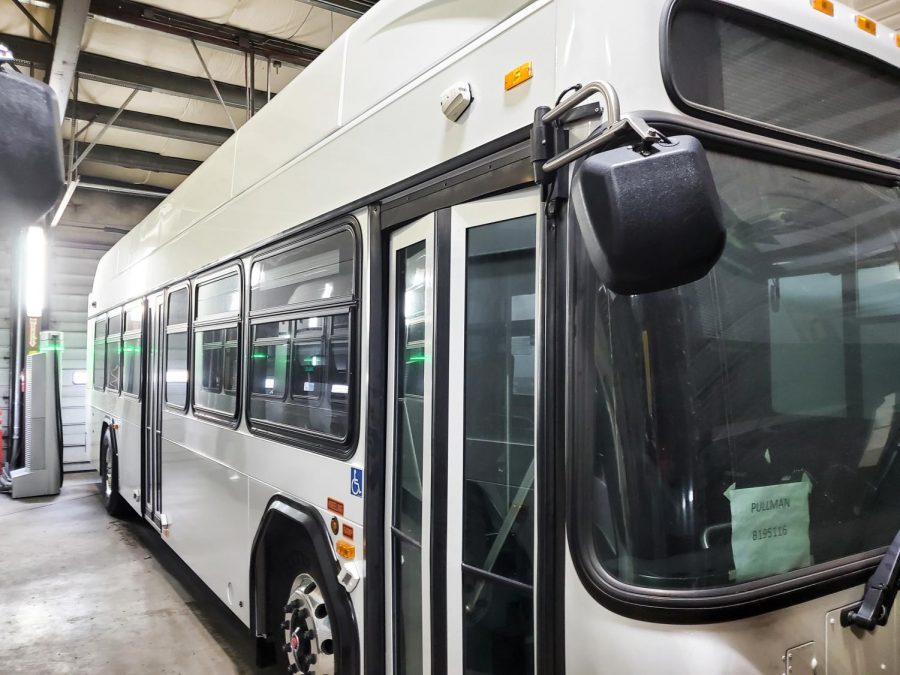Pullman Transit to become more sustainable
Two electric buses received in June; third bus will come in 16 months; purchase was funded by grants
If everything goes according to plan, then the electric buses will be on the road by the time school starts.
July 9, 2021
Pullman Transit received two electric buses on June 30, helping to cut costs and be more sustainable.
Extensive research was done regarding the vehicles’ cost, projected maintenance and the efficiency of electric versus diesel buses, said Pullman Transit Manager Wayne Thompson. Using information from Wenatchee Link Transit, Wayne estimates each electric bus will cost around $4,000 a year to charge.
The yearly cost to fuel a diesel bus is around $20,000, Thompson said. The electric buses can travel more than 150 miles on a full charge, he said. The longest route in Pullman is the Loop Route, which travels around 147 miles each day.
Pullman City Council allowed Pullman Transit to move forward with purchasing the electric buses in 2018, Thompson said. The federal Buses and Bus Facilities grant program covered 80 percent of each of the $872,000 electric buses. Both buses were purchased 16 months ago, replacing two diesel buses from the 1990s.
The remaining cost was covered using local funds collected from fares and utility tax, said Brad Rader, Pullman Transit operations supervisor.
“Without the grant, we wouldn’t have been in a position to place an order like this,” Thompson said. “We rely on federal and state grants for most of our large capital projects.”
The electric buses are about 35 feet long and have around 30 seats, which does not include the number of people who use the bus standing, said Otto Nielson, Pullman Transit bus washer. Buses can hold around 50 or more people.
Pullman Transit purchases each bus from Gillig, a company based in California, Nielson said. Purchasing the buses from the same company helps maintain consistency when performing maintenance.
Thompson said the electric buses are emission-free and are quieter compared to the diesel buses.
“Electric buses are extremely quiet,” Rader said, “so going into the neighborhoods when we run till midnight, patrons won’t even hear the [noise].”
The buses’ fare boxes and two-way radios are being installed later this month, Thompson said. In August, the vinyl wraps are being added as the buses are currently painted white. The vinyl wrap will have a similar design to other Pullman Transit buses.
If everything goes according to plan, the electric buses will be on the road by the time WSU starts school, he said.
A third electric bus will arrive in Pullman in about 16 months. The transit garage currently holds two electric bus charging stations but can support up to six more, Wayne said.
Future plans involve expanding the facility to purchase more electric buses and charging stations if grants can be secured, he said.
“At this rate, as long as the grant funding continues and we continue to follow a strategy of zero emissions, we’ll have a fully electric fleet by about 2040,” Wayne said.


















